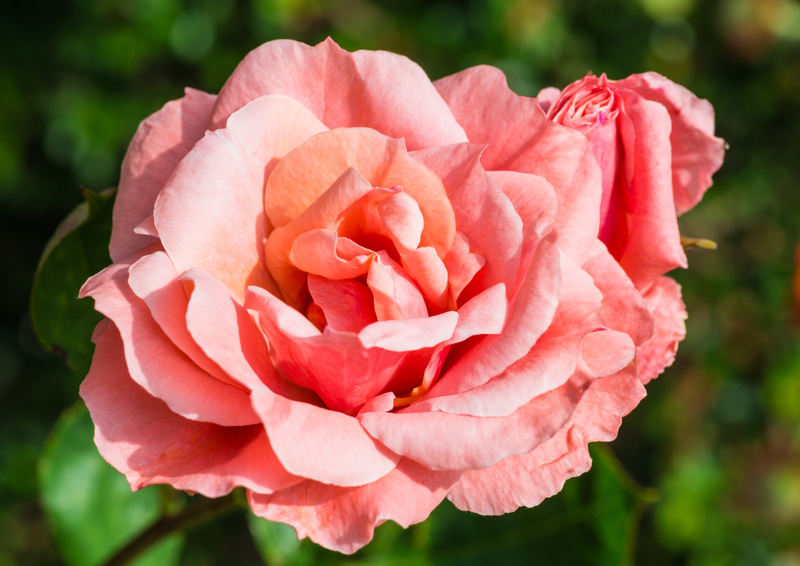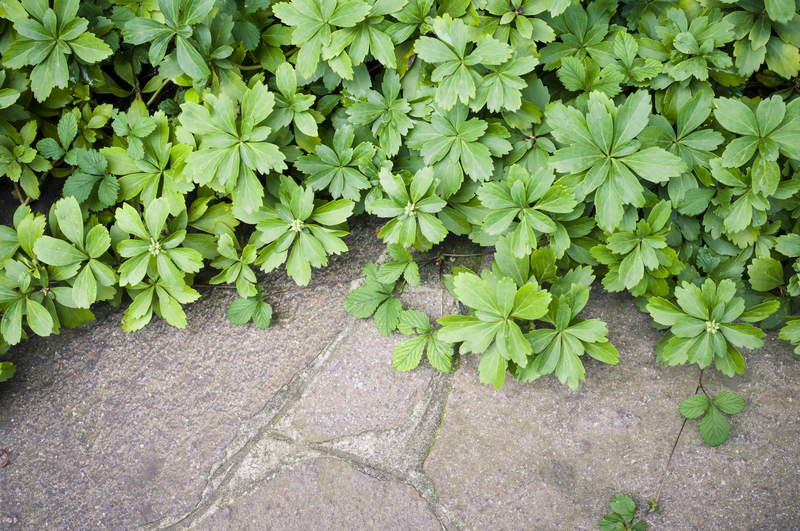Absolutely Essential: 3 Weed Control Tips for Every Gardener
Posted on 04/07/2025
Are pesky weeds overtaking your once-beautiful garden? Do you long to reclaim your flower beds or vegetable patch from these persistent invaders? Weed control is a challenge every gardener faces, regardless of their level of experience. Whether you're a novice or a seasoned horticulturist, understanding how to effectively manage weeds is crucial for a thriving and vibrant landscape. In this comprehensive guide, we'll delve into the three absolutely essential tips for weed control that should be a part of every gardener's toolbox. From preventative techniques to eco-friendly solutions, this article covers tried-and-true methods guaranteed to make your gardening experience more rewarding.
Why Weed Control Matters in Your Garden
Weeds are more than just unsightly - they compete with your plants for sunlight, water, and nutrients, potentially stunting growth and reducing yields. Effective weed management is vital for healthy gardens, lush lawns, and productive vegetable beds. When left unchecked, weeds can:
- Choke out ornamental and edible plants
- Harbor pests and plant diseases
- Increase maintenance time and costs
- Reduce garden aesthetics and curb appeal
That's why adopting smart weed suppression strategies isn't just recommended -- it's absolutely essential for every gardener who desires a flourishing garden paradise.

The 3 Essential Weed Control Tips for Every Gardener
Let's dive in to the core weed control practices that can help every gardener combat this persistent problem, and maintain healthy, vigorous plants all season long. Implement these strategies to maximize your gardening success.
1. Practice Preventative Weed Control: Stop Weeds Before They Start
The most effective way to win the war against weeds is to prevent them from ever taking root. Adopting a proactive approach minimizes the need for constant intervention and saves countless hours of maintenance. Here's how to make your garden as inhospitable to weeds as possible:
- Mulch, Mulch, Mulch!
Applying organic mulch (such as shredded bark, wood chips, straw, or compost) in garden beds and around plants is one of the best natural weed prevention methods. A 2-3 inch layer:- Blocks sunlight needed for weed seed germination
- Helps retain moisture and regulates soil temperature
- Improves soil structure as it breaks down over time
- Dense Planting
Packing your garden beds with healthy, vigorous plants leaves less space for weeds to take hold. Select groundcovers, densely spaced flowers, or companion crops that shade the soil. - Use Cover Crops
In off-seasons, sow cover crops (like clover or ryegrass) to suppress weeds, improve soil fertility, and reduce compaction. - Regular Lawn Care
Set your mower blade high and keep grass thick and healthy. Dense turf is a natural deterrent, making it tough for weeds to establish.
By focusing on preventative weed control, you'll dramatically reduce the number of weeds in your landscape, making gardening far more manageable and enjoyable.
2. Master Physical Weed Removal: Timing and Technique
Even with diligent prevention, weeds will occasionally pop up. The key is to address them quickly and efficiently, before they set seed or spread. Physical weed control still remains one of the most sustainable and effective weed management options.
- Hand-pull Carefully
For smaller areas, hand-pulling is highly effective -- especially if done while weeds are young and soil is moist. Grasp weeds near the base and pull gently to remove the entire root. - Use the Right Tools
Equip yourself with a hoe, dandelion digger, weeding fork, or hori-hori knife to tackle deeply rooted or stubborn weeds. Scuffle hoes glide just below the soil and sever roots efficiently. - Timing is Key
Weed after rainfall, when the soil is soft; roots will come out more easily and completely. Always remove weeds before they flower and produce seeds to prevent future problems. - Dispose Properly
Don't leave uprooted weeds on the soil surface. Compost only if they haven't set seed, or discard them in green waste bins to avoid spreading weed seeds.
Regular, attentive weeding keeps your landscape under control and prevents weed populations from exploding. By incorporating this essential garden maintenance routine, you will enjoy cleaner, more productive beds throughout the growing season.
3. Choose Safe and Effective Chemical Controls (When Necessary)
For some gardeners -- especially those dealing with pervasive perennial weeds or large-scale infestations -- chemical weed control may become necessary as a last resort. It's vital, however, to use herbicides judiciously and responsibly:
- Selective vs. Non-Selective Herbicides
Only use selective herbicides that target specific weeds (such as broadleaf formulations for lawns). Non-selective herbicides kill any green plant and should only be applied with caution and precision. - Spot-Treatment
Avoid broadcast-spraying. Apply chemicals directly onto individual weeds to minimize harm to beneficial plants and the environment. - Follow Directions Carefully
Read and follow all label instructions regarding application rates, timing, and safety precautions. Wear appropriate protective gear, and never apply on windy days. - Explore Organic Alternatives
If you prefer non-synthetic solutions, consider horticultural vinegar, natural oils, or commercial OMRI-listed (organic certified) formulations. These offer effective control for many annual weeds, but may need repeat application.
Responsible herbicide use is absolutely essential for maintaining a healthy and safe garden environment. Always exhaust manual and cultural options first, and never exceed recommended concentrations or frequencies.
Bonus Weed Control Strategies for Persistent Problems
- Solarization
In hot climates or vacant beds, cover the soil with clear plastic for 4-6 weeks in midsummer. This technique "cooks" weed seeds and roots using trapped solar heat. - Boiling Water
Pour boiling water directly onto weeds in cracks or pathways for immediate results. Take care not to splash desirable plants. - Flame Weeding
For gravel or non-planted areas, specialized flame weeders burn weeds away quickly and without chemicals. Use only with proper safety precautions.
Weed Control Do's and Don'ts: Practical Tips
- Do: Monitor your garden regularly and address weeds while they are small.
- Do: Stay consistent with your prevention and removal routines.
- Do: Use mulch generously and replenish as needed.
- Don't: Over-till your soil, as this can bring buried weed seeds to the surface.
- Don't: Rely solely on herbicides -- implement a balanced approach for long-term results.
- Don't: Let weeds go to seed - one weed can spawn hundreds of new plants!
Common Weed Types Every Gardener Should Know
- Annual Weeds -- e.g., crabgrass, chickweed. Germinate from seed and complete their life cycle in one year. Control early, before they mature and set seed.
- Perennial Weeds -- e.g., dandelion, bindweed, Canada thistle. These come back year after year from persistent roots. Dig deeply or target with systemic herbicides.
- Biennial Weeds -- e.g., burdock, wild carrot. Live for two years; form leaves first year, flower and seed the next.
Identifying your weed foes is the first step toward successful control. Tailor your approach to the specific weed species invading your landscape.

Organic and Eco-Friendly Weed Management Solutions
For gardeners seeking a sustainable and environmentally-friendly approach, numerous organic weed control methods can deliver effective results without chemicals:
- Mulching with biodegradable materials
- Encouraging healthy soil to promote strong plant growth
- Hand-pulling and hoeing regularly
- Planting weed-suppressing groundcovers
- Using natural weed barriers (e.g., cardboard, newspaper beneath mulch)
By integrating these options into your gardening routine, you promote biodiversity, protect pollinators, and create a harmonious outdoor space.
Conclusion: Make Weed Control a Priority in Your Garden
Every thriving garden tells a story of dedicated weeding, careful planning, and proactive management. By implementing these absolutely essential weed control tips, you not only safeguard your investment in time and plants but also create a beautiful, low-maintenance landscape.
- Prevent weeds from taking root using mulches, groundcovers, and dense plantings
- Remove existing weeds regularly with a hands-on approach and the right tools
- Utilize chemical controls cautiously as a last resort -- always prioritize safety and environmental impacts
With consistent effort and the right knowledge, weed-free garden beds and lush lawns are within every gardener's reach. Transform your gardening experience by mastering these basics -- your plants, and your pride in your property, will thank you!
Frequently Asked Questions about Effective Weed Control
- What is the best time to weed my garden?
Early morning or after rain, when the soil is moist, makes weeding easier and more effective. - Can I use vinegar to control weeds?
Yes, strong horticultural vinegar works on young annual weeds, but it may require multiple applications and can harm desired plants nearby. - How often should I apply mulch?
Replenish mulch annually or when you notice thinning to maintain a consistent 2-3 inch layer. - What if I have pets or children?
Opt for organic weed control methods and avoid chemical herbicides where kids or pets play. - Why do weeds keep coming back?
Persistent weeds may have deep roots or large seed banks in the soil. Consistent management is key to long-term control.
Remember: Weed control is absolutely essential -- make it a habit, and your garden will reward you year after year.
Latest Posts
Affordable Green Retreats: 5 Low Maintenance Garden Tips
Step-by-Step Guide to Weatherproofing Your Garden
An Introduction to Container Gardening

